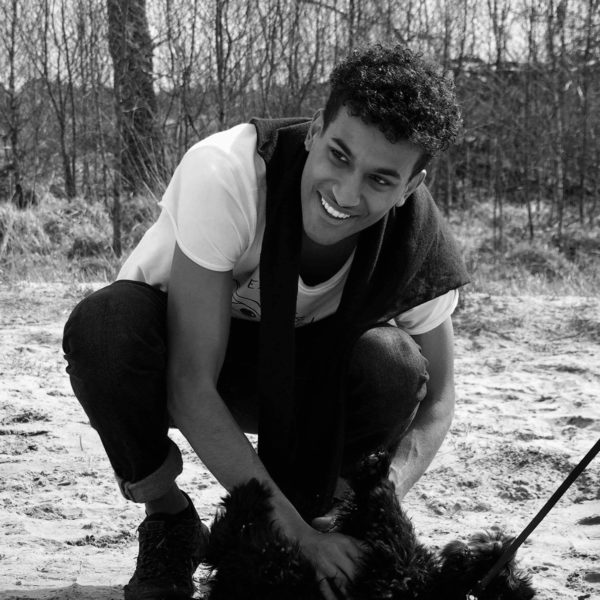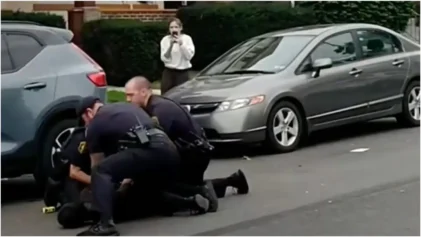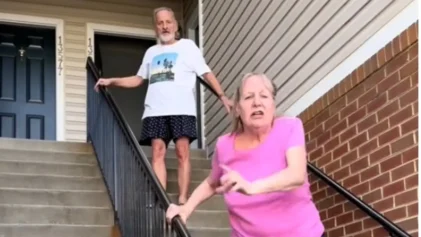When K.U. Leuven student Sanda Dia decided to join the Reuzegom fraternity, he thought becoming a member of the elite organization would improve his life, not take it. That’s exactly what happened when the 20-year-old Belgian — who is of Senegalese descent — died during a cruel, two-day hazing ritual at the hands of his predominately white “brothers.”
Dia died in December 2018 in what was initially ruled an accident. However, Dia’s family said they don’t buy the given explanation. They believe he was murdered and the motive was racism.

“This was not an accident,” Dia’s brother, Seydou De Vel, told the New York Times.
“They thought, ‘He’s just some Black guy,’” Dia’s father, Ousmane Dia, added. “‘We are powerful and nothing can happen to us.’”
Described as an excellent student who was always ambitious, Dia was studying civil engineering and in his junior year at the university. According to De Vel, he wanted to join Reuzegom because he thought it would provide him with opportunities to be successful. Being a member, Dia said, would better endear him to Flemish white elites that comprised the organization’s membership.
“It has benefits, being in a club like that,” Dia said, according to De Vel. “If you know them, it’s good for your network. And when you leave school, they will trust you a lot faster.”
After a night of being forced to drink alcohol until he passed out, bite off the heads of live rodents, swallow goldfish whole, gulp fish oil, get urinated on by other members and stand in a ditch he had to dig that was subsequently filled with ice and water, Dia died. The cause of death was listed as hypothermia and multiple organ failure.
He was one of three pledges — the only Black and the only fatality of the evening. According to media reports, Dia was left in the ditch longer than the other two white pledges.
Upon learning of Dia’s death, the university lightly disciplined the students. Their punishment was to write a paper on the history of initiation rituals and perform 30 hours of community service. They continued their courses of study and some members even graduated, according to local media reports.
That changed after Kenny Van Minsel, the former president of the university’s student association of clubs, came forward with disturbing allegations about Reuzegom’s members.
“Two months before his death, we were informed of a racist incident in our Albatros event room. The club in question was Reuzegom. The target was Sanda Dia. Two months later, Sanda died during a hazing organised by Reuzegom,” Van Minsel tweeted.
Van Minsel doubled down on his claims during an interview with the Times, saying members of Reuzegom treated Dia poorly and called him the N-word.
“They represent a type of social class, predominantly white — that’s a given — and predominantly upper-class,” Van Minsel said. “Their argument was that Black people should work for white people. … They treated him like an object.”
Before being forced to disband, Reuzegom only had one other black member whose given nickname was Rafiki – the monkey character in “The Lion King.”
In addition to Minsel’s statements, WhatsApp messages, videos and photos have been recovered by investigators that include footage of Reuzegom’s members singing “Congo is ours” to a homeless black man the night Dia died. A photo of members in Ku Klux Klan robes is also alleged to have been on a member’s Facebook page.
A detective on the case told Belgium paper Nieuwsblad Reuzegom’s members cleaned Dia’s room so well there wasn’t even a garbage bag in sight. Members also deleted the organization’s online and social media presence.
Now 18 members of the club, which isn’t even an official fraternity under a national umbrella, are under investigation. Charges range from involuntary manslaughter, degrading treatment, guilty negligence (Dia wasn’t taken to the hospital until several hours later) and deliberate administering of harmful substances, according to local news reports.
On Sept. 4, lawyers for the defendants and animal rights organization Gala were granted their request for additional investigation in the case. Advocates and protestors are calling for #JusticeFor Sanda, but it’s been an ongoing process.
Ousmane Dia told the Times he asks himself one question since his son was killed nearly two years ago. “What would have happened if Sanda were white?”


